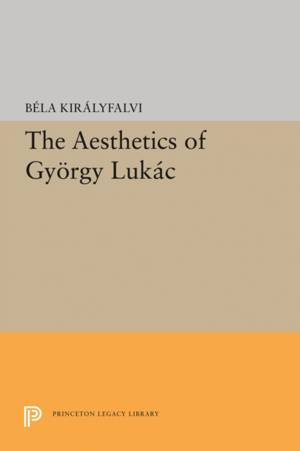
- Retrait gratuit dans votre magasin Club
- 7.000.000 titres dans notre catalogue
- Payer en toute sécurité
- Toujours un magasin près de chez vous
- Retrait gratuit dans votre magasin Club
- 7.000.0000 titres dans notre catalogue
- Payer en toute sécurité
- Toujours un magasin près de chez vous
Description
This book-length treatment of György Lukács' major achievement, his Marxist aesthetic theories. Working from the thirty-one volumes of Lukács' works and twelve separately published essays, speeches, and interviews, Bela Kiralyfalvi provides a full and systematic analysis for English-speaking readers.
Following an introductory chapter on Lukács' philosophical development, the book concentrates on the coherent Marxist aesthetics that became the basis for his mature literary criticism. The study includes an examination of Lukács' Marxist philosophical premises; his theory of the origin of art and the relationship of art to life, science, and religion; and his theory of artistic reflection and realism. Later chapters treat the concepts of type and totality in Lukács' category of specialty, the distinctions between allegory and symbolism in his theory of the language of art, and Lukács' understanding of aesthetic effect and form and content in art. There is a separate chapter on Lukács' dramatic theory. This lucid and readable account of Lukács' aesthetic theories will be of special interest to students of literature, aesthetics, and drama. In addition, it will be appreciated by those generally concerned with Marxist theory. Originally published in 1975. The Princeton Legacy Library uses the latest print-on-demand technology to again make available previously out-of-print books from the distinguished backlist of Princeton University Press. These editions preserve the original texts of these important books while presenting them in durable paperback and hardcover editions. The goal of the Princeton Legacy Library is to vastly increase access to the rich scholarly heritage found in the thousands of books published by Princeton University Press since its founding in 1905.Spécifications
Parties prenantes
- Auteur(s) :
- Editeur:
Contenu
- Nombre de pages :
- 180
- Langue:
- Anglais
- Collection :
Caractéristiques
- EAN:
- 9780691645070
- Date de parution :
- 19-04-16
- Format:
- Livre relié
- Format numérique:
- Genaaid
- Dimensions :
- 156 mm x 234 mm
- Poids :
- 430 g

Les avis
Nous publions uniquement les avis qui respectent les conditions requises. Consultez nos conditions pour les avis.






